Here we are, almost forty years after the end of the Vietnam War, reminiscing on Facebook and other social websites about those experiences we endured in a war so long ago. As we age, many of those memories have faded away, others, were purposely buried, destined to remain that way. However, some of these traumatic experiences continue creeping up to the surface, the details, clear as day and as if the incident occurred just yesterday. What if I told you that my reoccurring nightmare isn’t about encounters with enemy soldiers on foreign soil, but of a single incident that took place right here in the United States with my own countrymen? That’s right, it’s about my homecoming after serving honorably for a year in the Vietnam War.
The goal of every serviceman in Vietnam was to survive the brutality of war and return to the safety of “The World”. I was happy, proud and thankful I survived – finally on my way home. Our Pan Am jet landed at McChord AFB in Washington State and after disembarking, we had to walk across the tarmac to a large hanger almost a quarter of a mile away. Unlike other wars, Vietnam Veterans did not come home as a unit, instead, they came home as individuals with 250 other strangers on a jet plane; a long single file line of veterans snaked toward their destination. Large posters greeted us, announcing “Welcome Home”, “Thank you for your service”and “Our Country is Proud of you” among others. Once inside, we were served steak dinners, completed a short physical examination and then issued new dress uniforms; all are shocked and comment at their new measurements as this is something none of us paid attention to while overseas. Every one of us lost an average of six inches around the waist. There is a feel of excitement in the air! All are anxious to complete this process and leave for Tacoma International Airport to coordinate the final leg of their journey home.
Dressed in my new uniform; all ribbons, badges and sergeant stripes in place, I was ready to be welcomed home by the local populace, who had gathered in a large group outside the airbase; every one of us were looking forward to sharing the love.
Instead of finding love, we were bombarded with hate! People stood on the side of the road holding signs condemning the war and us returning veterans. They chanted slogans as a group and yelled insults to us as we passed. Once the bus began pulling away, tomatoes and eggs fell from the sky, splattering against the windows. All of us on the bus sat quietly, shocked, jaws agape, unable to believe what had just happened. Welcome to the new “World”!
We were treated like outcasts, blamed for a war we didn’t start, accused of killing innocent women and children, called dope heads, spit at and ridiculed by citizens most of the way to Michigan. Don’t get me wrong, I did meet some very generous and friendly people on the way, but they were solely the minority and far and few in between. Some uniformed soldiers with missing limbs were jeered at and told that they deserved their fate… 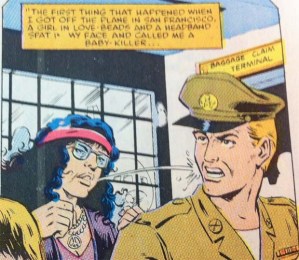
These actions, similar to the Westboro Baptist Church group that demonstrates at soldier’s funerals today, were not well accepted. Unfortunately, we didn’t have a Patriot Guard to run interference for us and had to face the demons head on. 
When arriving home, I was dumbfounded, ashamed, and depressed about our treatment – so this is the thanks for putting our lives on the line and for sacrificing what we did during the past year! I began questioning myself – was I right in going to fight in Vietnam or did I make the wrong decision? I soon discovered that it was better to not advertise and just keep quiet!
The news media had continued to flame the public opposition to the Vietnam War by broadcasting distorted and biased accounts from the battlefield. Reporting that the use of drugs in Vietnam was escalating, increased incidents of soldiers refusing direct orders to go out on patrols, and the military inflating body counts and misleading the public on the war – so the warriors were blamed for losing the war! 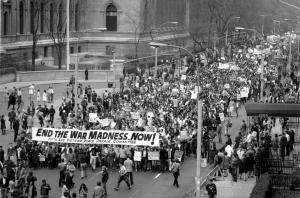
Clearly, it was unpopular for someone to be a Vietnam Veteran or even a member of the military. In the 1970’s, Vietnam Veterans were discriminated against for jobs, publishing books of their war experiences and were referred to as the social delinquents in our society – even the VFW refused to allow us membership. It seems like every movie about Vietnam to that point portrayed the veteran as a killing machine with mental problems, bad marriages, hooked on drugs or alcoholics.
They were considered an unstable and dangerous lot – a group that citizens should be wary of and avoid. Vets clamped up, refrained from wearing military uniforms in public, grew beards and long hair to fit it with his peers, keeping primarily to themselves. The truth was that our country just wanted to forget about Vietnam and didn’t want any reminders circulating. In my opinion, November, 1982 was the start of a new era for Vietnam Veterans – the wall in Washington DC was dedicated and the healing began.
Then, after Vietnam Veterans of America is founded in the mid-eighties, former combat veterans came out of their closets in droves, growing the organization by establishing local chapters throughout the country. Finally, there is an outlet for veterans to talk about their tours and others who understood and listened intently. The camaraderie is unsurpassed to this day! The time had finally arrived for them to be recognized and appreciated. 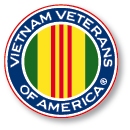

Not long afterwards Chicago and New York City both hosted “Welcome Home Vietnam Veterans” parades in attempts to recognize veterans and change public opinion. I personally marched in that parade and have nothing but the greatest admiration for the Chicago residents – they went out of their way to sincerely make us feel wanted.
How many of you are aware that in 1998, sociologist Jerry Lembeke published a book: The Spitting Image: Myth, Memory and the legacy of Vietnam, which completely discredits the claims that American Soldiers were spit on when they returned home and that it was a common urban myth, constructed to ruin anti war protesters.
It stated, “that spitting on returning soldiers started somewhere around 1980 when Stallone mentioned it in ‘First Blood’. Anyone who thinks that a number of U.S. soldiers were spit on and did not retaliate by whipping someone’s ass is admitting that they think U.S. Soldiers are wussies. There is no way that you could spit on more than a select few soldiers and not get into a fist fight requiring someone to write a report about the incident.” Since no reports or evidence was available, it never happened. The truth is that these returning soldiers were still numb from the war and confused when confronted by the protesters. They were unable to react or chose not to retaliate to further fuel the fires enveloping them.
Looking further into this, I found that shortly after the book came out, a Chicago columnist, Bob Greene, came up with an idea for a newspaper column that eventually resulted in a published book. The idea was prompted by rumors heard over the years. In a column that is syndicated in 200 newspapers nationwide, he asked the following question: “If you are a reader of this column, and you are a Vietnam Veteran, were you ever spat upon when you returned to the U.S.?” The response was overwhelming and more than 1000 soldiers wrote in. The many letters confirmed the rumors and make a poignant, genuine statement on their own. Taking excerpts from these letters, editing and verifying, Green put them together in a book called, “Homecoming”. 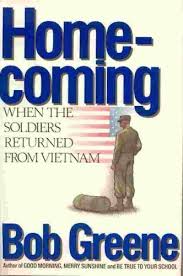
Here are some excerpts from his book:
“In the Seattle airport as I was arriving home after serving in Vietnam in 1968-1969, a gang of 10 to 20 total strangers clustered in the terminal and shouted insults at me as I passed by in my uniform. It never occurred to me that people could … attack individual young soldiers who walked through the airport alone in their sacred hour of homecoming.`
When J. Leonard Caldeira returned from Vietnam he was walking with his fiancée in San Francisco. A rather nondescript man, “not a hippie,” he writes, spat at his uniform. “Nothing was said but the incident saddened and confused me. I took off my uniform later that day and never put it on during the rest of my stay in San Francisco…. The only mental scar that remains with me today of Vietnam was the unwelcome display of that man in San Francisco.
“ Frederick H. Giese of Arlington Heights, Ill., was evacuated from Vietnam to a hospital in Japan. While there he met a Japanese woman, married her and adopted her son. When he returned to the United States in 1970, he was in uniform, wearing all his medals — including the Purple Heart and Bronze Star. “My family and I were standing in line, when, out of the blue, this middle-aged lady walked up to me with a bowl of potato salad in her hand. She threw the salad smack in the middle of my chest and spat what salad she had in her mouth in my face. Then she proceeded to call me a `baby killer, a `warmonger`, and a lot of other vile names. That was how I was welcomed home. That is how my family was first introduced to America.
“It is dumbfounding to read letter after letter of such utter, personal viciousness Americans directed at Americans. These disquieting testimonies plumb depths of meaning on the war that volumes of analysis cannot”, said Greene. “I have no doubt that many returning veterans truly were spat upon,” Greene writes in his preface. “There were too many letters, going into too fine a detail to deny the fact. I was profoundly moved by how, all these years later, so many men remembered exactly where and when they were spat upon, and how the pain has stayed with them.”
Bob Boughton, of Fredericktown, Ohio, recovering from injuries received in Vietnam was waiting for a bus home: “An elderly woman came up to me, looked me square in the face and called me a hired killer. But then, a young lady dressed in bell-bottoms, love beads and a peace symbol came up to me as the elderly woman walked away. She looked me in the face and told me she was sorry for the way the returning vets were being treated. I could never forget her face and those few kind words.”
Greene writes, “I did indeed include the invitation for anyone who had spat upon a returning soldier to write in and explain his or her motives, and to reflect on how he or she feels about it now.“
“There were no responses.”
Many others, while not spat on, were called baby killers and war criminals by strangers, and occasionally by people they knew and friends from the neighborhood. A number were welcomed back and thanked for the sacrifices they had made by citizens in public. However, the vast majority of well wishes were from immediate family members.
Most of the spitting and jeering incidents in the book happened in San Francisco, where a large number of returning veterans stopped on the way home. Nevertheless, they also happened in the southwest and midwest. The veterans felt that the American people had turned against them. From the soldiers I have known the common theme was they experienced this in some other areas of the country but it was virtually unheard of in the south. This is only word of mouth and nothing is documented.
President Obama told a crowd gathered at the Vietnam Veterans Memorial Wall, “You came home and sometimes were denigrated, when you should have been celebrated and commended for serving your country with valor. It was a national shame, a disgrace that should have never happened. And that’s why here today we resolve that it will not happen again,” he said to applause.
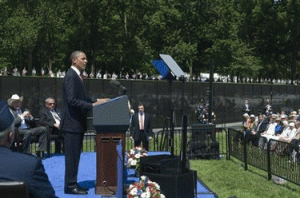 Many Vietnam vets remain embittered by the treatment they experienced following the war. The social alienation of Vietnam veterans, ostracized by the community instead of being welcomed home, has contributed to the problems of PTSD.
Many Vietnam vets remain embittered by the treatment they experienced following the war. The social alienation of Vietnam veterans, ostracized by the community instead of being welcomed home, has contributed to the problems of PTSD. 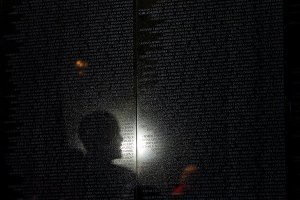
Today, the American psyche is ingrained with greater respect for the military, in large part, because people recognize that past treatment of Vietnam vets was a mistake.
So does this mean we should forgive and forget? Some scars are too deep to glaze over, and I, for one, will carry mine until I die. What about you?
Thank you for taking the time to read this. Should you have a question or comment about this article, then scroll down to the comment section below to leave your response.
If you want to learn more about the Vietnam War and its Warriors, then subscribe to this blog and get notified by email or your feed reader every time a new story, picture, video or changes occur on this website – the button is located at the top right of this page.
I’ve also created a poll to help identify my website audience – before leaving, can you please click HERE and choose the one item best describing you. Thank you in advance!

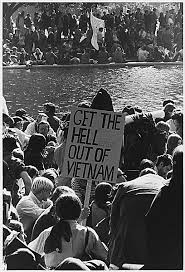

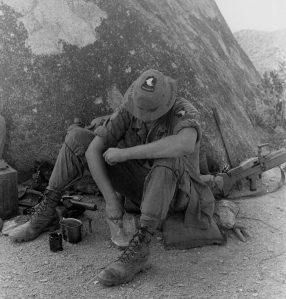

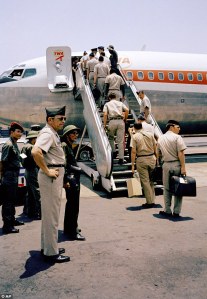
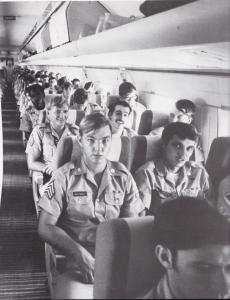

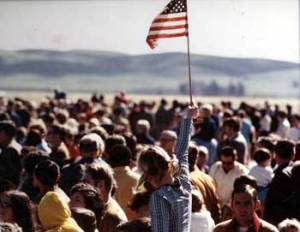
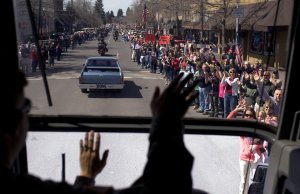
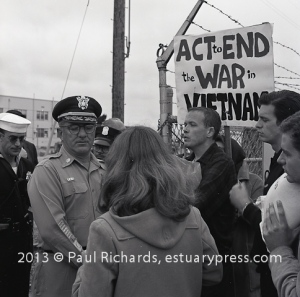
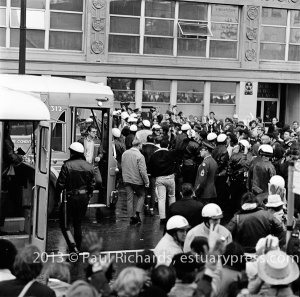
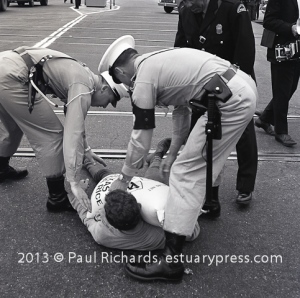
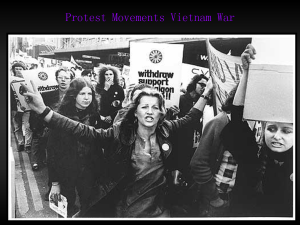
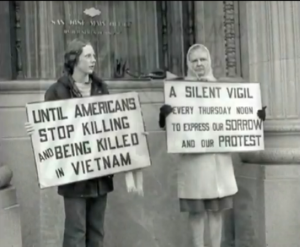


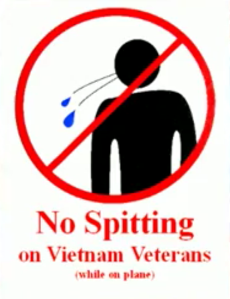

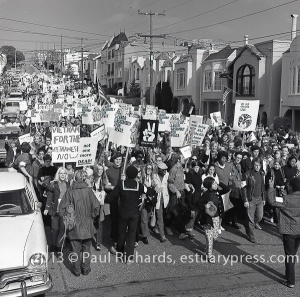
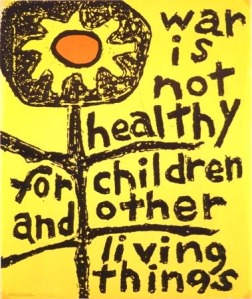
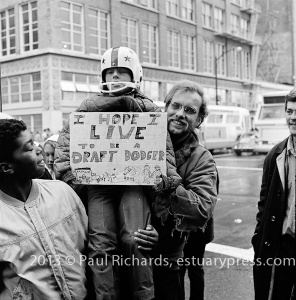
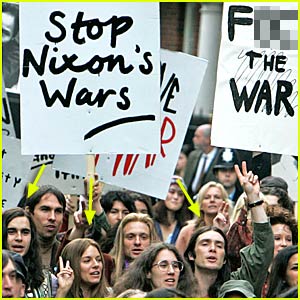
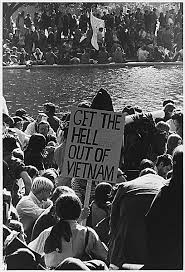
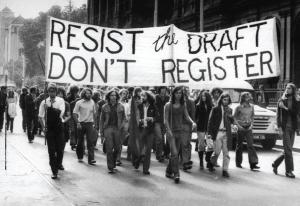
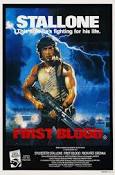

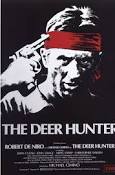
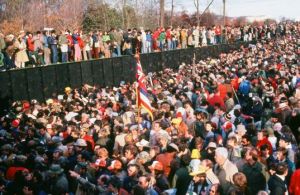
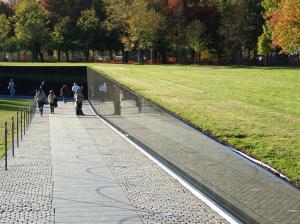
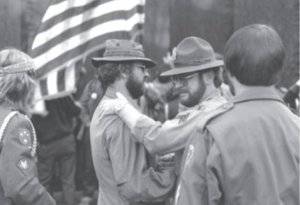
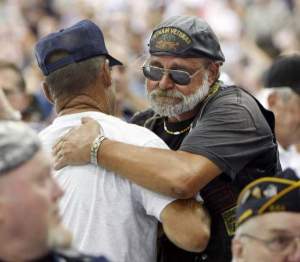
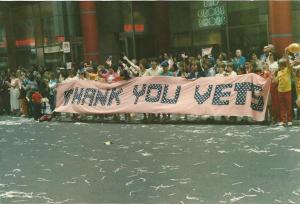




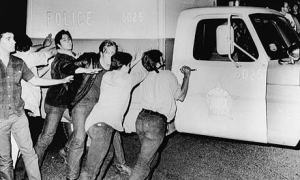
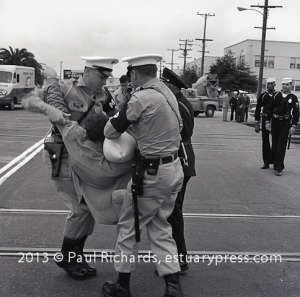

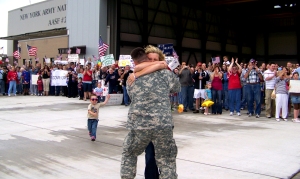
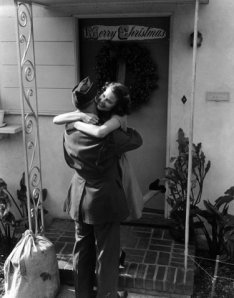
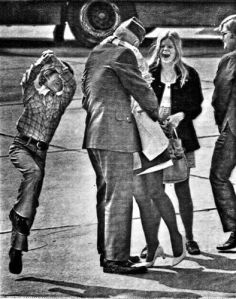

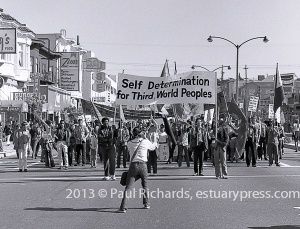

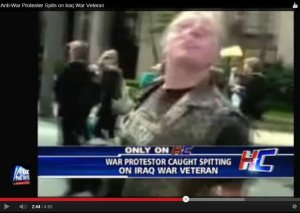
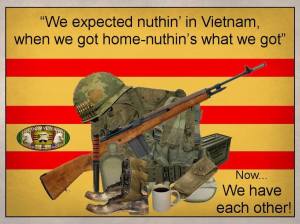
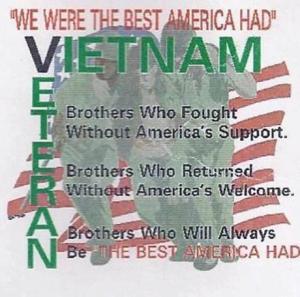

I came home in December 1968 from Vietnam I had to change planes in San Francisco International Airport my two buddies thought that we would get something to drink before saying goodbye as we’re walking down the hall we saw a group of people gathering at the end we did not know at that time that we were not liked as we were proud being in uniform we didn’t think what was going to happen as we approached the group we noticed the signs and the group started saying that we were baby killers and hired murders Then they started doing tomatoes and garbage at us and starting getting too close the airport police came and pulled us apart and took us down to the stairs to where the baggage area was and told us to wait until our flights and they will take us to our plane when we got to the plane I had to wait till everyone was on board and then I was able to get on board as I walk down the aisle to my seat all The passengers we’re staring at me with an angry look no one said anything you know my brand new uniform pocket was torn my sleeve was torn and I had tomatoes pieces still on and I was so embarrassed To think that my own country people Would treat one of their own this way when I arrived in Las Angeles I called my family to get a ride home they told me they’re all too busy,
LikeLike
I myself grew up in the SF Bay Area during the Vietnam War and saw the growing opposition and protests. My family on the other hand, supported the war, which made for a lot of friction among my own family, my community, and my classmates. And to this day, there are still people whom I have not spoken to for over fifty years because of Vietnam. And that war’s divisions are still with us today.
LikeLike
I have buried the war along with the friends I lost. I wish the spitters and hairheads had been in the bush with us or better yet instead of us. I made the best friends I ever made there and they taught me many things. I stand for their bravery, and kneel because of their cruelty at times. It was a bad place and sometimes required bad solutions. Before people judge people you need to take a walk in their boots. Any combat veteran knows women and kids can kill you just as dead as a full grown man. I never pulled the trigger on a woman or child I knew of but I also sent a lot of rounds downrange marked occupant. I didn’t go there to get killed or be a victim. I went because my country said they needed my poor country ass.
LikeLike
I would really like to know what those people that spit think of themselves now and do they have the balls to admit it and apologize
LikeLike
This article re: Treatment to Vietnam Vets, goes straight to the Heart. It’s true that Returning Vietnam
Vets did not come home like those of WWII. Because it was a longer time span, We came back in small groups – especially those towards the End. While I was not spat at , I did suffer other Humiliations – by a State Employee, of all people.
After looking for a Job without success, my Mom told me to put in a claim at the Unemployment Office, since I had built up Benefits.
On my first visit, the State Employee asked me if I didn’t feel ASHAMED – Asking for a Handout! I made no reply, for fear that she would DISCARD my Application. Then she asked me if I was a Baby Killer!! Again, I made no comment. It left me NUMB for the rest of the day as I returned home. On a second visit, she asked me how much I would like to earn per hour. I said that $3.50 an hour , seemed fair.
That got quite a Reaction, because she then said to me : “ Beggars can’t be Choosers “.
The Humiliation and Anger that I felt , almost brought me to tears – but my Marine Mentality kicked in , and
I sucked it in. That Memory still REMAINS with me to this day. A few months after that interview, I landed a Job at a Meat Packing Company at $4.50 an hour.
I KNOW for sure that No Government Employee would Dare treat a Veteran that way , TODAY.
LikeLiked by 1 person
I was an Okie in the 3-47 9th Div, in 68. When I came back to OKC there were no parades or welcome home crowds,except for family. Okies are good people. Later on in years when it became politically correct to thank a vet I thought it was maybe a little late,but I appreciated it, We were just young men, trying to do the right thing. Like the saying goes, (All gave some,Some gave all) It has been over 50 years, and I think about the ones that gave all almost every day. None of us came all the way back, and that journey is never going to end. None of us were perfect,we cussed ,drank (on stand downs beer was furnished on the Benwah) , Well I will leave that go for now. Maybe some day if the good lord is willing and the creeks don’t rise we can see the guys and girls that gave it all. Just shed a tear for them and maybe one for us, who gave some . Because it ain’t no fun asking your self ( why me Lord ) and I know you combat vets know what I mean !
LikeLiked by 1 person
Sorry but true . to all my brothers
Welcome Home!
LikeLike
Jerry Lembcke is a fool judging from his imbecilic commentary.
LikeLike
I have read this page and it saddens me the way our VIETNAM VETERANS have been treated. They deserve better. I want to say THANK-YOU for you’re service to all of our VIETNAM VETERANS. A proud sister of a VIETNAM VETERAN. 1st Battalion, 11 Infantry Regiment, 1st Brigade, 5th Infantry Division (mech.) Quang Tri Province, RVN
LikeLike
Outstanding. I came home in 74. Got some of the same treatment.
LikeLike
Those that were there you did the best you could. Be proud just because some people are A holes.
I had a hard time getting over it and I am not happy yet. I still go to a VA hospital. Thank you for those that volunteer to help us, hats off to you.
LikeLike
As an infantryman, I spent a year in the bush in 1966. Upon arriving home, I received the same treatment that has been described, including being spit on.
Before we could get discharged, all those who had Purple Hearts had to attend a talk by a VA rep. He warned us that if we filed for benefits, we would be labeled as disabled and would never get a good job. He had all of us sign forms rejecting all VA benefits. Sometime later I was working as a carpenter when I developed a terrible pain where I had been shot. In Nam, I was told that they had removed the bullet, but an x-ray showed that part of it was still in me. I went to the VA for help but was turned away because I had signed that waiver. Twenty years later, encouraged by a Vet friend, I went back to the VA. They denied ever having a program to disenfranchise wounded Vets and allowed me access to benefits. There has never been an effort by the VA to reach out to all of those 1966 Purple Heart Vets that signed the waiver. A retired VA Administrator told me that the VA had launched this program in 1966 as a cost saver but was scuttled when a Senator found out. It was swept under the rug and denied that it ever happened. Thanks, VA.
In Nam, I was awarded the Silver Star and three Bronze Stars. Because of that, I was asked to speak about the war, in uniform, at a local college. As I walked to the podium, hundreds of people rose to there feet, screaming “baby killer” and pelted me with rotten tomatoes. I tried to escape out of a back door but my car was surrounded by angry protestors, who rocked the car, trying to tip it over. Luckily the police arrived and I got out.
Taking advantage of the paltry GI Education Bill, ($130/month if you were full-time) I enrolled in another college. On my first day, I was angrily confronted by the Chairman of my department, who told me that Vietnam Vets were not welcomed in his department. I toughed out, graduated with Honors and then confronted him!
In my state there has never been a parade for us and no monuments or speeches to welcome us home. The local VFW told me that Vietnam Vets were not welcomed to march in their 4th of July parade. That hurt.
I have struggled with depression and anger management since returning from Nam. Last year, at the age of 73, I got into a fist-fight in a parking lot. When the cops pulled us apart, one of then shouted at me, “Old Man, what are you doing!” The younger man that I had been fighting, had made a derogatory remark about Veterans. I was unable to let it pass. After three marriages and a lot of pain, I still can’t let it go.
Having said all of that, I don’t regret one moment that I spent in Vietnam. I’d give anything to be back with my platoon, coming into a hot LZ, out on the skids, firing from the hip. If you haven’t experienced that, you don’t know what an adrenaline rush it can be, and how addictive it is.
I love my fellow Combat Veterans!!!
LikeLike
There’s a Special place in Hell for the Wannabe Commie Cowards Aye Aye Semper Fi RVN 1968 USMC 0311
LikeLike
This is a very interesting group of comments about returning from Viet Nam. I had many experiences such as described here particularly when I went back to college in 1968. Got into some serious discussions I guess you could call them.
I have been invited to speak to the VVA chapter in Mesa Arizona Sept 18 about my new book A Marines Daughter about this very subject. I hope some of you are local and we can meet there.
Semper Fi
Al Hague
LikeLike
Dec 24 1968 after being medicated back too the World landing at Andrews AF Base heard on a slow drive in Ambulance too Bethesda Naval Hospital Bethesda Md in a drug induced day Mare my Welcome Home awaited Me by the Freaks whom where blocking the entrance to the Hospital…I never eXpected a parade but did not eXpect Balloons w/red dye being thrown at my Ambulance and the foul chit these a$$hole$ where calling me…Deep inside I got a very good feeling knowing one of the reasons I did my Duty was so these Freaks could do the Chit they where doing Only in America Welcome Home Marine
LikeLike
I worked in downtown Chicago & made my way to the parade on my lunch hour. Was so good to see our Vietnam Veterans finally getting a homecoming!
LikeLike
Thank you for your support!
On Thu, Apr 19, 2018 at 3:16 PM, Cherries – A Vietnam War Novel wrote:
>
LikeLike
My heart goes out to you for losing your grandfather. Your family sacrificed more then most will ever know. Thank you for your love for our awesome military.
Don’t let the trash talkers get you down, they feel guilty for their cowardly actions during that time period so rather then just shut the F#@@# up they continue to run their mouths.
Semper Fi
Vietnam 1969
1/3/3
LikeLike
Well said, brother Gary!
On Saturday, February 10, 2018, Cherries – A Vietnam War Novel wrote:
>
LikeLike
Thank you for your service for those who have commented on this post that are Veterans. I am proud to be a Gold Star Family member of a Vietnam Veteran, who actually didn’t make it home to meet his baby girl (my mother). For those who are trash talking our soldiers from past shame on you if it werent for them we wouldnt be where we are now. You think we are in hard times now, i bet for sure it was worse back then during the early years even before Vietnam
LikeLiked by 1 person
When I came home, I knew in advance what to expect as a veteran of the Vietnam War. I was only in combat roughly 6 months, winter of 72 to spring of 73. Didn’t understand how if effected me but for 2 reasons.
First, I slept with a gun under my pillow and when I ventured out of my home, I always had my shoulder holster on. It took at least 2 years to begin to leave my gun at home and at least another year not to sleep with my gun.
Second was when my little sister 3 years younger than me, told me one day she missed her brother she knew before I went to war….
What I did understand is that war is not the answer. By no means discounting my brothers & sisters who served/serve in Iraq or Iran. They, like me and you did/do what has/had to be done when you are in the moment….
LikeLike
Considering how America stopped sending troops to Vietnam in July to August of 1972 and the last American ground troops in Viet Nam came hope in early 1973 I find your statements, how do you say, “questionable”.
LikeLike
( “What I did understand is that war is not the answer. By no means discounting my brothers & sisters who served/serve in Iraq or Iran.”)
I could have sworn it was Iraq and Afghanistan
LikeLike
Coming home to this country scarred me more than anything I experienced in Vietnam.
LikeLike
Over the last year of paying close attention I realize that if I wear my “Marine Veteran” ball cap I have WAY more people thank me for my service then they do when I wear my “Vietnam Veteran’s” ball cap. just saying
LikeLiked by 2 people
When I returned from Nam in 70, was amazed and disappointed of how our Nam Vets were treated! Had I received some of those insults, I would have ended up in jail before seeing my wife and children!
LikeLiked by 2 people
My brother, Henry Webb, served in Vietnam. He was such a proud Marine, good soldier, veteran and loved his country. He passed 2 years ago (age 63) from many ailments from agent orange being sprayed by our own government. He was a Purple Heart recipient who never liked to talk about Vietnam. He was honored to serve his country and would have gone to the end of the earth to do it. He was so disgusted by the ignorant people and their actions when he returned home from Nam. UPon his death he ask me to send a fellow marine he served with a book he had bought…..”OUR WAR WAS DIFFERENT” can’t remember the author. IT was told by many soldiers who fought in Vietnam.. When I visit his gravesite “The Radcliffe Memorial Veterans Cemetery” close to FT. KNOX, KY I always pray for all the families that gave so much. I walk thru his section and place pennies on the headstones to show their memory has value to me and I am so thankful for the service of all the true HEROES. GOD bless all who serve and have served to keep our freedom. My awesome and wonderful brother would always say “Freedom isn’t free, many have paid a high price for it”
LikeLiked by 2 people
So sorry for your brother’s pain He was a hero, but I am sure would never claim that honor. You are too. Those of us who love(d) our Viet Nam veterans suffer too. I finally had to give up on mine, he refused to be happy. Now, I hear he has terminal Cancer. I hope he will let me see him. I am sure it is also from the Agent Orange. Maybe these boys will at least find peace they well deserve and be honored in their heavenly reward.
Mary Patricia Power 858-442-4038 – cell
On Mon, Jan 30, 2017 at 1:49 PM, Cherries – A Vietnam War Novel wrote:
> LInda Zirnheld commented: “My brother, Henry Webb, served in Vietnam. He > was such a proud Marine, good soldier, veteran and loved his country. He > passed 2 years ago (age 63) from many ailments from agent orange being > sprayed by our own government. He was a Purple Heart recipient ” >
LikeLiked by 2 people
Makes me ashamed that so many weak-minded “Americans” were overcome by Media Anti-War protests. Our soldiers deserved so much better!
LikeLiked by 2 people
I had no one in the battle, but at the time I hated those SOB’s for protesting which I felt extended the time they were there. God bless them, especially those still in pain mentally or physically affected. I include our present Secretary of State Kerry in that disgusting bunch.
Mary Patricia Power 858-442-4038 – cell
On Mon, Jan 16, 2017 at 12:42 PM, Cherries – A Vietnam War Novel wrote:
> Susan Holland Santi commented: “Makes me ashamed that so many weak-minded > “Americans” were overcome by Media Anti-War protests. Our soldiers deserved > so much better!” >
LikeLiked by 2 people
I am a student doing a presentation on coping after war for our military servicemen,
can I use some of your images in my presentation?
please email me back with permission…
LikeLiked by 2 people
By all means.
On Nov 24, 2016 2:08 PM, “Cherries – A Vietnam War Novel” wrote:
>
LikeLike
Very closely mirrors my return to McChord in Nov ’67. Not spat on but on the cab ride to SEATAC the cab driver was totally disinterested in the fact that I had just returned to “the world” from Vietnam. No warm greetings from anyone that I had encountered during my trip back to Florida. I was so let down that our return was so different than what we imagined it would be like while we were over there. Like others, the return to the states from Vietnam sticks out in my mind more than some other things that I endured while I was there 49 years ago years ago this past June 2nd.
LikeLike
John, I responded to Larry Donaldsons post but it came out on the one above. Could you please edit it for me. PS I’m half way thru your book! I am really enjoying it.
Bob Quinn
LikeLike
Thank-you And We Done too ! USAF SAC 62-67.
LikeLike
Correction: 5 years and 10 months (2 July 69)
LikeLiked by 1 person
OK, I didn’t serve in country Vietnam, but I enlisted 3 years 11E, 5 and 10 months before the fall of Saigon. But it amazes me, that I was trusted with the training, use, and knowledge of an air defense secret weapon, plus my Armor Crewman Training and later graduating from an aircraft repair school. But yet, a local Army Arsenal would not hire me to work on The Sergeant York project (air defense armored vehicle), nor would General Dynamics (who developed the system I was qualified on) would not answer inquires about employment!
And, I never sold out secrets, to our enemies, despite some own business here in The USA, I now some time apply for part time employment to.
LikeLiked by 2 people
I have a question to those who served in Vietnam. Does the peace sign make you feel anything? Anger or nothing? I see them on people EVERYWHERE and it drives me nuts! I feel it is a direct slap in the face of our Vietnam Vets to this day. Am I wrong to despise them? Thank you for your feedback, but more so, thank you and God Bless you for your service to America!!!
LikeLiked by 2 people
Hi Stephanie,
Personally, I never had an issue with peace signs. In fact, many soldiers wore them in Vietnam or drew the sign on their helmets, we also greeted one another with the two-finger salute – it was our link to the world. I never did associate the peace sign with those who harassed us after returning home because this type of action came from people in all walks of life – not just the so called hippies. Many hippies treated us with more respect than some of our friends, neighbors and professional people from all walks of life. / John
On Tue, Jul 12, 2016 at 10:35 AM, Cherries – A Vietnam War Novel wrote:
>
LikeLiked by 1 person
This work.. says a lot. About the mistreatment.. and other things that happened to the vietnam vets.
I would like to just say one thing tho.
Maybe your scars WILL NEVER HEAL.. but that does NOT give you the right to inflict new scars on your children.
Most of them are grown now.. but if any of them are like me.. they still pay the price.
Holding US responsible for the mistakes the people that hurt you made.. is assinine. most of those people that hurt you, or spit on you, or called you names.. are VERY VERY sorry.. or VERY VERY DEAD.
NO we DONT understand how you feel.. we weren’t BLOODY BORN YET.. when this happened.
you do realize every time you snap at one of your children because they dont get it… you are VICTIM BLAMING. you DO understand that RIGHT? And you do understand that we SUFFER as much if not more than you. Mal formed limbs, skin leasions, blood diseases, cancer, mental illness, infertility.
So please before you talk about your scars or snap at your children because they dont understand what happened.. remember that..
We didnt ask for this ANY MORE than you did. We dont understand because we hadnt been born yet. We are DYING in as many numbers as fast if not faster than you.. sometimes before we even have a chance to be adults.
Watch what you say, the war WAS NOT our fault any more than it was yours.
LikeLiked by 2 people
I’m sorry for your pain. Many returning vets just kept the pain internally and could only relate to loved ones thru that pain. I dealt with my pain and guilt for what happened there and the guilt and joy for surviving by drinking heavily. I missed my children’s childhood by being a drunk. That place affected all of this country some way. I pray you find comfort and peace. Try to forgive and release yourself from your pain.
LikeLike
As in all things there is always nay sayers . I served in Vietnam 1968 and 1969 . I was a grunt saw my friends die and get maimed . We didn’t fight for this country we fought for each other as that was our position at the time .I came home in July 1969 and while waiting for a flight out of L.A. a young hippy women came up and spit on my ribbons , I was in shock at feirst and then I recovered and stated to the young women that I had not seen a round eyed women for a long time and asked her if that was her way of foreplay. She split immediatley and an older lady produced her handkerchief and wiped my ribbons off. I thanked her , then while I was getting a sandwich from a lunch place I bought a down and outer a sandwich and the bird stole my wallet thank god my money was in my sock.I have to say that this was not the only negative impact as it seemed to continue for years.I have NHL now and its not a immediate death sentance it is a pain in the butt , Thank you Monsanto .I am still angry but contain it .
LikeLiked by 2 people
Yah.. you suffered.. there’s no denying that..
Lemme ask you something tho… Did you turn around.. when you finally found someone to love you..and had a family…Did you do what i saw happen? Take his issues out on his children? Yell and scream at them because he never bothered to re learn how to communicate with non army people. Tell little girls that they shouldnt cry because showing emotions is bad? Look them in face and tell them that they were just as bad as the people who spit on him simply for voting for a different political party?
a child that was born ill? A daughter that was born club footed? Born with her intestines In knots?
Born with a blood disease that will SLOWLY and PAINFULLY end her life before shes 65?
Born unable to be a mother.
I did you mistreat someone like that ? Because they “didnt understand”? what you went through?
If you were blessed with healthy c hildren you were one of the lucky few… if you had children that were sick and dying.. you were like everyone else.
IF you took your issues out on one of your children.. healthy or sick… you are just as mean spirited as the people that hurt you.
So before you go off on about how people mistreated you.. think about how if you did it first.
OH and before you get snappish.. what i described.. was my life.
LikeLiked by 1 person
And now you pass on a wall of bitterness, and with the poorest grammar! This is not about you. I’m sure you are being honest, as my father went to the Army at 17 (my grandparents had to sign for him to join). He came back from Vietnam as an alcoholic and drug addict, in addition to being violent and unstable, but if I found anyone who spat on him at Travis AFB, I would likely kick them in their brittle hippie hip, and spit on them – not really, but I would think about it. Those who abused returning soldiers were traitors to our country.
LikeLiked by 1 person
I recently applied to a well known auto parts company, for a part time job as a delivery driver, over the internet. They asked if I was a Vietnam Era Vet? OK, yes! I’ve got a good driving record, own a house, put a kid through college, never owed a bill past payment in my life, good credit rating, never been arrested, held a secret clearance, discharged as E-5, ran an Air Defense platoon in a Tank Unit, good conduct, drove a truck or a bus for the last 17 years of my working life, educated as an Air Craft Tech, worked as a company repair rep back in the 70s, and 80s, etc, etc!
Yep, they never answered me, nor did they (That Head of Human Resources in Virginia…you know who you are?) answered my hard copy letter, asking them, if they really cared if I was a Vietnam Era Veteran? Brother, they had a lot of nerve, asking a question like that.
Living here in New Jersey, for a good part of 44 years, post ETS, this is just the tip a the ice berg, of all the bull crap, I’ve been through, because, usually, some one had a hard on for me being in the service of my country, as a teenager, between 1969 and 1972…I was ETSed one month before my 21 birthday…now, a shrink sez I have PTSD, but I can’t prove a specific incident, that got me that way! Now, I’m, according to some political commentary, just some character, who sits behind a key board.
LikeLiked by 2 people
Sorry for your difficulties, Fred. Try contacting a service rep. at the VVA local chapter level or the VFW. Both have experience to get you the help you need. Thank you for your service! Good luck!
On Wed, Feb 3, 2016 at 1:38 PM, Cherries – A Vietnam War Novel wrote:
>
LikeLiked by 2 people
Dear Sister Mary,
Am happy to see you mentioned that “Miscreant” alleged hero, with that J.Fonda, I’m certain that her father had to be embarrassed at her actions when visiting Nam!!
Thank you for your kind words of support!
Jerry Zimmermann
69-71 RF/PF Advisor w/ MACV in Sadec Province.
First Shirt, retired in 83 Ft Campbell, KY
““““““““““““““““““““““““““““““““““““““““““““““
PDOGGBIKER,
Thank you for what you do for our Nam Veterans, by your nick name, I’m assuming you are also a BIKER! I noticed the PGR was mentioned, joined that great group of Vet Bikers about 11 years ago.
It has been way to difficult for me the past couple of years, ending up crying, staggering, due to the usual garbage of AO, Diabetes & PTSD, feeling really bad for the families of these heroes, and they thank us for being there for them!!
Brother, my right index finger is get’n sore, so my Brother, if you ever have a chance to visit the left coast, LaLaLand, you have a place to hang your Skid Lid!
My email address is:
jerrypgr@hotmail.com
Ride Safe my Brother!
PopPop
LikeLiked by 2 people
Thank you pop pop for your kind words and the invite to visit the west. Doubt I’ll ever make it there but thanks all the same. I ride a 97 Heritage but it’s becoming more difficult with arthritis and other deficiencies from age and agent orange. Welcome home bro and ride safe!
On Mar 7, 2017 8:16 PM, “Cherries – A Vietnam War Novel” wrote:
>
LikeLiked by 1 person
Brother John,
Am getting a trike mounted on my bike, should have it this week.
My wife and kids will feel better about this 79 year young’un doing that! Might give it some thought in doing that with your bike!
Take care my Brother,
PopPop
LikeLiked by 1 person
I returned home in October 1969. We landed at Travis AFB California. There was no one there to meet me. I was in the 1st Air Cav, SGT in the infantry, nervous wreck, confused. We got on a bus pouring rain that day driven to Oakland Army Terminal. The driver was pretty old as I remember and almost killed us for he was speeding and we spun the bus 360 degrees around on highway 80. I walked up to the front and told that F—-r to slow down because we’re not going to get killed after all the s–t we been thru. Anyway, I didn’t have anywhere to live so I rented a motel for two weeks until I found a studio apt to rent. I’m from San Francisco and these people were really f—k–. I didn’t talk for a year or so. I don’t know how I made it without killing someone. Thanks to the Vet Centers and the VA I’m ok. It was a lousy homecoming.
LikeLiked by 2 people
I was severely wounded in Vietnam on August 10th 1969 so never came back through the airports facing the angry crowds of protesters like so many did but was treated many times with indifference by those I met over the next year. Even family were like well good you’re home now life goes on. It wasn’t until a year later I was at a party, my hair was longer and had started to grow a beard you know, trying to fit in, when I was talking to two girls , flirting a bit and things were fine till I made a gesture with my arm and the sleeve of my shirt pulled up enough to expose the USMC tattoo on my bicep. Immediately one of the girls asked what it was and I said I got in when I was in the Marines. The other asked , ‘were you in Vietnam? I answered sure was and got the scars to prove it!. They both gave me the strangest look like I was some unknown species that just crawled out from under a rock and walked away. It was like someone dumped ice water on me. As I watched them they went from person to person nodding or pointing to me as they spoke with others and the expressions on their faces registered anything from a frown to open disgust. It didn’t take long for me to feel unwanted like I had a deadly disease that was highly contagious. I swear I was given more room as people backed away from me! I left the party with a bad taste in my mouth and from then on for years I just kept my mouth shut about Vietnam. I must point out that while that was the straw that broke the camels back I had met with too many negative remarks, looks, attitudes etc . People just didn’t want to hear about Vietnam, even my family. I found it better to just keep my mouth shut and get through life.
on a side note to Lisa: Before I went to Vietnam but many knew I was going, I was mostly treated with disinterest or shaking of heads. Never anything like disgust or anger directed towards me like I received after. That was in late 1968
LikeLiked by 2 people
I remember the first drink Jim Stickley and I had at the airport(sea tac) bar, there were a couple of suits who looked over at us in contempt. I thought what the fuck I just put 16 months in S.E.A. and this is the state of things. I never had that feeling with the locals in Phan Rang, anyway I became as civilianized as quickly as possible and have lived with all the feelings stuffed away all these decades.
LikeLiked by 2 people
I’m a v n vet, don’t belong two any organization
have bad papers, might have ptsd but all that aside, lm glad our new veteran are being taken care of that’s all
LikeLiked by 2 people
Reblogged this on cold war vietnam.
LikeLiked by 1 person
I am a college student writing a paper about the treatment of soldiers after Vietnam. This website has been very helpful. Thank you for creating it. My uncle was a PJ and I am honored to be his niece because of the sacrifice and service that he gave. I am saddened that anyone was treated so terribly after serving their country but generations like mine are proud of our Veterans. I know that doesn’t erase the past but I hope it can ease the pain just a tiny bit.
LikeLiked by 2 people
Lisa, thanks for your response. Unfortunately, the damage is done and nothing will change that…kind of like in a courtroom when somebody says something and the judge says the jury should disregard the statement…yeah, right…just touch your nose to delete. I’d be interested to hear about your paper…perhaps even publish it here???, Good Luck!
LikeLike
Maybe I will publish it here if you like. If anyone would like to provide any information for me regarding how you were treated BEFORE leaving for the war once people knew you would be leaving, that would be extremely helpful! I wonder if you were harassed as harshly before leaving or if public opinion was not as strong until after the war? Thank you in advance.
LikeLiked by 2 people
Hi Lisa!
I’d be interested in learning more about what you find out from the soldiers that respond to your query. If you want me to announce your plans and ask for feedback across all my vet groups, then please let me know. You can then publish here as a guest blogger. Let me know – contact me via email to discuss more: john.podlaski@gmail.com
LikeLiked by 1 person
I feel maybe in time ,I’ll forgive. I will never ever forget!.
LikeLiked by 1 person
Lisa. I left my parents home in Jan 1970. I had been gone a week and still had been not assigned a unit. ( Later, a short stint with the 75th Rangers (LURPS) and then Scouts and Lift Platoons, Troop C, 1/9 Cavalry.)
Anyway, I was still at the 90th Replacement Depot when a major came and got me and told me I had to call home because my parents were worried so much.
They had received a phone call from someone who claimed to be a representative of the Army who told them I had been killed.
Needless to say after hearing that from Dad and Mom there was no love lost by me for the people of America.
Funny thing. I had to make another phone call home (via MARS) because the Army screwed up, listed me as KIA, and sent a telegram to my parents.
I insured them that I was just fine. I told them that I was in a really quiet place and was in no danger. ( Read the seven books about the 1/9 Cavalry. They called us the “Head Hunters” and we hold the record of the following:
1. Started every major battle, and countless smaller battles, the 1st Cavalry Division (AM) ever became involved in.
2. Experienced more combat than any other US military unit did in Viet-Nam as well as any other veteran before, during, and since the Viet-Nam War.
3. Displayed above and beyond the call of duty every day by someone in the Troop.
4. We were credited with over 50% of the total division kills throughout the whole time the 1st Cav was in Viet-Nam. (1965 – 1972)
5. Every man who was a 1/9 trooper had a price placed upon his head by the North Vietnamese Army (to include the VC)
6. Was the only unit to be considered a suicide unit by many 1st Cav veterans and soldiers still stateside were warned NOT to be assigned to us. That included pilots, air crewmen, grunts, and every other MOS a soldier held in our unit.
7. Most of the time each individual trooper who became engaged with the enemy was outnumbered by 10 – 1 ratio up to over a 1000 – 1 ratio.
8. Was the only US military unit who served in all four Corps Tactical Zones within South Viet-Nam, and Cambodia and Laos.
9. Assisted the USMC grunts during the 1968 siege of Hue, RVN, and the only US Army Unit who actually , boots on the ground, broke the siege of Khe Sanh, RVN.
10. The Hal Moore movie, “We were Soldiers” based upon a battle that happened during 1965 and was considered the first battle of the Viet-Nam War between American and North Vietnamese soldiers was actually proceeded by the 1/9 Cavalry by almost 20 days prior to that famous battle in and around that same location.
And there is more. So much more. Almost every man decorated for heroism in the 1/9 was slighted. In any other unit that a soldier (For example) was decorated with a Silver Star Medal or a Distinguished Service Cross, received a decoration that was much, much lower award. (For example: Silver Star Medal in any other Army Unit rated a Bronze Star Medal with a :”V” device.)
I was wounded by enemy rounds and shrapnel from one source or another. I was only ever awarded one Purple Heart Medal for a bullet wound in my left leg. The other wounds we never went to, as long as we could walk and function, to the Squadron aid station because that meant we would be grounded from further missions thereby letting our own platoon, as well as the other platoons, down. We became experts in removing shrapnel from each other by using a knife and tweezers we purchased from the PX in Long Binh.
When I came back to the world (the states) after my tour I experienced both good and bad. The most impressive treatment I ever received was from a civilian airline pilot who scrubbed the 2nd class seating I was assigned to and place right up in the first row of 1st class seating and even allowed to enter the cockpit cabin and given a chance to fly the airliner.
The worst treatment was that my very best friend all the way through high school heard that I was home and came to visit.
He walked through my parents door during my first supper at home when he heard that I was home and his very first words to me were, ” Welcome home Murderer. How many babies did you kill?”
I never answered his question then. I just got up and punched him back through the door out onto the porch and then knocked him ass over tin cup over the porch railing.
My mother gave me hell but my dad, a WW 2 Pacific Theater vet, never said a word. I never finished that meal my mother cooked for me, my favorite by the way, I lost all my appetite that evening and retreated to the bedroom.
My only wish that night was that I never should have left my real friends in Viet-Nam
When the big ,”Welcome Home” thing was going on I was approached by some members of the city council who wanted me to carry the colors in the Welcome Home Viet-Nam Veterans parade. I listened to their bullshit and when they were done I told them thank you but , “NO.” You’re 20 years to fucking late now leave my home and me alone.”
They did. They have.
Good luck on your papers and please keep it honest about us vets.
I thank you.
Lift Mike 35
LikeLiked by 2 people
Dear Lisa,
Thank you for your kind words, they mean a lot to me and my fellow Nam Vets!!
Army Retired.
Cheers,
PopPop
LikeLiked by 1 person
Truth is Hate, for those who Hate the Truth! All the lamestream media brainwashed liberals only know the lies and propaganda they were force-fed since youth, so are unable to create an original thought. That is the reason only foul sludge pours from their mouths as drool while light travels in from one of their ears and out to the other. Due to there being many more of these moronic idiots in our country than those of real intelligence is why their many blood-sucking insect (Poly Tic) friends are now running, I mean ruining, the USA! – SAG, USS Decatur, 7th Fleet
LikeLiked by 3 people
The Vietnam veterans accomplished a great and valiant service to the United States of America both by request and volunteerism for the sake of their family and friends and all citizens of the United States. They made hundreds of accomplishments in all of the battles that they faced and in the satisfaction of protecting their fellow brothers on the battlefield. Anyone willing to fight for freedom, democracy and their fellow soldier is worthy of being honored. War is ugly but so much beauty is found between brothers on the battlefield. Bottom line , I have never served and therefore have no right to say anything negative about anyone who ever did serve. If you think you have the right to dishonor an American veteran then please leave the United States of America. We don’t need you! I am 31 years old and I make sure to thank any veteran I come in contact with for their service and I wish all of them could be Vietnam veterans. Fighting in another country to protect their freedom and their threat of communist rule is fighting for our ideals and worthy of respect and honor and would lessen the threat to the United States. No one will pay attention to the Bystander because that is all that he is a bystander adrift in ignorance and confusion. The same goes for Cin who I can only think of as being a Sin for living in the presence of great American Vietnam veterans. God bless those willing to sacrifice for my freedom and country and our fellow man.
LikeLiked by 2 people
Well said Brother!
LikeLike
My American Patriot,
Thank you for your patriotism and kind words of support!
Nam Vet 69-71.
Army Retired.
PopPop
LikeLiked by 1 person
In retrospect just what did your service, and the service and sacrifice of all Vietnam era vetrans accomplish? You did not liberate Vietnam, in fact as soon as the last American left it was overrun by the Communists. There was no threat from them on the United States, so you really did not protect our freedoms. Perhaps you weren’t honored because there was nothing to honor.
LikeLiked by 1 person
And you know this…….”From what? What “HOLE IN THE GROUND DID YOU CRAWL OUT OF? Is that where you’ve been when we tried to help a country half way around the world in it’s quest for “FREEDOM?” They waited till we left to to move in. What they agreed too they didn’t honor. And the “WORLD LET IT HAPPEN!” This has nothing to do with “OUR HONOR, IT WAS THERE!” So you are “SO FULL OF IT!”
LikeLiked by 2 people
And you know this…….”From what? What “HOLE IN THE GROUND DID YOU CRAWL OUT OF? Is that where you’ve been when we tried to help a country half way around the world in it’s quest for “FREEDOM?” They waited till we left to to move in. What they agreed too they didn’t honor. And the “WORLD LET IT HAPPEN!” This has nothing to do with “OUR HONOR, IT WAS THERE!” So you are “SO FULL OF IT!” ’65-’67 SocTrang Vietnam 101st ahc/336ahc
LikeLiked by 2 people
You can yell in caps all you want but you didn’t answer my question. What would the 55,000 names on the Wall think if you told them that they died so that 40 years later the Vietnamese people would be free to buy a cheeseburger at a McDonalds in Hanoi. Again what did your service accomplish? The answer of course is nothing. You accomplished nothing but suffering for a mistake. That isn’t really worthy of our honoring you now is it?
LikeLiked by 1 person
Mr. Bystander, maybe you don’t understand how things work. Soldiers do not make foreign policy or initiate wars. They salute their Commander-in Chief, the President, and then carry out his orders. That’s how it works.
It was the same civilian leadership that would not let us win the war. We were prevented from going after the enemy in Cambodia and North Vietnam.
If we were to let soldiers decide about war, there would be no wars! Of course, we would all be speaking German, Russian or Chinese.
The fact that we fought hard and honorably, in the most miserable conditions imaginable, for this country, is why our service should be honored. How dare you denigrate that faithful service!
“It is not for us to ask why, it is for us to do or die.” That’s how it works.
LikeLike
You can’t share your true name and live in shame, like some degenerate pedo. I would really love to meet you in person to see what kind of internet troll, traitor posts such a cowardly ,miscellaneous response. You live a secretive, cowardly life, afraid of stating your name traitor
LikeLike
The north signed a piece treat and when we left the Ignored it. That’s what happened you “iDIOT!” This for bystander Nov 12 2014 at 3:34 pm
LikeLiked by 2 people
Ooops…….. meant to type 58,300+/-
LikeLiked by 1 person
@ Bystander(I bet!!) & Cin
I really hope you 2 aren’t living in the US. If you are, you should MOVE… as you’re using up good oxygen & don’t even deserve the benefits that have been guaranteed you by the US soldier… yes, even your much maligned Vietnam veteran!!
Much like Korea, the Vietnam War was not exactly a huge military success story (coulda been). But just ask a couple hundred million South Koreans if they’re glad we came to their land to fight Communist aggression. Likewise, ask the generations of South Vietnamese expatriates, living now & yet to come, who have been spared the genocide that occurred in SE Asia before, during, & after the Vietnam War & the “reunification”! Yeah, that was the “baby killers” you so kindly refer to, risking their mortal asses to help a people they didn’t even know!! You ignorant jackasses!! And you can thank Monsanto or Union Carbide, etc for dioxin (Agent Orange) as are the tens of thousands of vets (and in some cases their children) who are also suffering from its effects. I’m pretty sure the US ground troops didn’t devise that tactic!! They were simply victims of “friendly collateral damage”.
You DO realize that Vietnam had been basically ruled by Chinese occupiers for over a millennium before being colonized by France for a century or so (during which time they were also occupied by Japan), right? Or that the relatively new, independent (capitalist) govt. of South Vietnam wanted the US to intervene on their behalf against the Chinese & Soviet backed communist north?? Or that (as another poster rightly pointed out) the north AGREED via treaty, to leave South Vietnam alone if we withdrew, & then reneged??
I’m not a Vietnam vet…. I came of age during the Vietnam War & graduated high school as it ended. Thank God I didn’t have to witness protesting & disrespect like that in my small southern hometown (which lost 37 fine young fellas to Vietnam). But I well remember the “day” & am STILL ASHAMED @ the way MY country treated these returning veterans… ashamed of the way the anti-war crowd skewed the publics’ attitude, thus undermining support even more… to the point we lost a war we WERE WINNING!! Come to think of it, you two are probably the progeny of some of the same nitwits out burning draft cards or “beating feet” to Canada. Or are you just “long in the tooth” protesters, yourselves? If so, you should be REALLY proud of yourselves……NOT!!
You guys are very naive about the realities of war. The US military is certainly the most BENEVOLENT fighting force that’s ever existed, throughout history. It’s my unshakable belief that in large part, the reason we didn’t fare as well as we could have in Vietnam, is that our military was forced to fight “too nicely”, expected to be civilized while fighting an enemy that was anything but!
As for the (ahem!) 52,300+/- listed on that Wall, I honestly can’t even BELIEVE I’m still reading DRIVEL like this in 2016. I just don’t know what to say other than apologizing to their survivors & our veterans that there are folks like you –so unappreciative & unrelenting in your cowardly disdain for them– still around, using up good “free” oxygen! Apologies submitted, GOOD SIRS!! Welcome home……….. and fight on, brothers
Signed: An APPRECIATIVE American PATRIOT (& volunteer VVMF researcher)
LikeLiked by 2 people
Thank you.
LikeLiked by 1 person
Steve,
Thank you for those kind words, they mean a lot to me and my fellow
warriors!
Served Army from 57 to 83.
First Shirt, US ARMY
PopPop
LikeLiked by 1 person
My Patriotic Brother from a different Mother,
Thank you for those words of wisdom, they are much appreciated!!
363 days in Nam!
Ciao=Chow,
PopPop
US ARMY RETIRED.
LikeLiked by 1 person
Larry & Pop Pop, you’re both very welcome. Thanks for dutifully serving our country in Vietnam…. (a very belated) Welcome Home fellas!!
Reverently, SJ
LikeLiked by 2 people
WELCOME HOME I am the proud wife of a Vietnam veteran who served in the 7th Squadron 17th Air CALVARY . What you and others went through is
MORE than most of us could understand except for being in Vietnam. I am proud of of all of our Military who served but so Sorry about the way you were treated after returning home and the PTSD , not being there but seeing the affects of endless nightmares and tremors. AGAIN WELCOME HOME! !!! Freedom is not Free proud of our Vietnam Veterans.
LikeLiked by 2 people
Thank You Karen. I (we) all appreciate your thoughts and kind words.
Bob Quinn
1/12th Air Cavalry 10/68-10/69
LikeLiked by 2 people
The Vietnam War was a mess from start to finish. It was waged by foolish cold-war politicians and idiot officers who used World War II style strategies even when said strategies were not working. Homecoming Vietnam vets had to put up with hypocritical VFWers who accused them of “losing the war” (the fact the Vietnam vets never being allowed to win the war being ignored) or a war weary American public that wanted nothing to do with Vietnam, period. The passing of time has seen still another aggravation – former leftists, draft dodgers, or anti-war protestors trying to pass themselves off as Vietnam combat veterans!
LikeLiked by 2 people
You don’t know shit about that war or any other war since WW2. What about Korea? What About Iraq? What about Afghanistan? What about the hundreds of little wars you know nothing about that occur while you jack of in bed? The main mission of Viet-Nam was to stop the spread of Communism throughout all of SouthEast Asia Do you have any idea about what that encompasses? The sea lanes remain open from the South Pacific to the Indian Ocean and the North Pacific. We did that. From Indonesia to Malaysia to stop armed insurgents from spreading their poison. We did that. To put iron in the ass of the Soviet Warsaw Pact nations of Europe to declare their freedom. We had a big hand in that. The United States military never lost a battle over there. NEVER! What do you know about My Lai 4? Do you know that until Calley and his platoon deloused that village that American casualties around My Lai 4 was comprised of many incidents of booby traps, mines, and sniper fire. Do you know that after what they did casualties dropped off dramatically. Why do you think that was? There were no VC left to plant the mines an booby traps and snipe at our troops. That equates to “no innocent civilians died there. I know of NO 2nd Lt. taking that responsibility upon himself to order that type of action. There was just as much honor displayed by the American troops then as in any other war. As a matter of fact NO OTHER American saw as much combat in 12 or 13 months in any other war that America was or has, ever been in. I watched many Americans risk their lives to save young children to old people caught in a crossfire. I watched a lot die doing it. I witnessed the atrocities committed by the VC and NVA on Sloyal South Vietnamese. Over 4,000 people from Hue in a mass grave because they were educated and professional. Doctors, teachers, artists, professors, priests and nuns, politicians and the list goes on and on. No. You don’t know you don’t know. You are part of the big lie about Viet-Nam. Personally I wish they would have unleashed us on the liberal Americans upon our return. There sure as hell would not be so many problems in this nation as there is today. One other thing I have to say to you. You have NO RIGHT to any opinion about Viet-Nam or about those who served there. That is one right you slimy bastards are not guaranteed by the Constitution. You had to earn that right. It wasn’t nor ever will be handed to you upon birth and then protected by those you despise. You have to earn that right and your sorry ass hasn’t. I hope we meet someday. I really do.
LikeLiked by 1 person
I love you.
LikeLiked by 1 person
I love you. Every time there is a posting on this site, I read them all and cry. I have loved a man who can’t function due to his experiences there. He does not allow himself to be happy. I really could kill those anti war protesters who grew up and now are ruining our children. This country is losing the war at home. God help you all still in pain.
LikeLiked by 1 person
I know exactly what you are saying and he is feeling. Please tell him I said, “Welcome home Brother.” Also tell him that him and I did and saw a lot more tha what we deal with now. We withstood it all and here we are with the good and the bad of what we experienced. What we are going through now is nothing compared to what we went through so long ago. To tell you the truth I have no desire for anything either. I live in a 14 foot x 8 foot room in a large house that I built when I was a lot younger. I built it to outlast me and to be as maintenance free as possible. All of that and here I am in this room. I have become pretty much a recluse but that by no means keeps me out of the damn world. I have been battling ever since I left Viet-Nam. I am no quittr by any means and I still maintain. I’m just waiting. Just waiting.
LikeLiked by 1 person
Bystander, your comment totally ignores the FACT that your liberal congress critters REFUSED to send any kind of aid to the South when the North invaded after the pull out. Your heros, the liberal left decided all the sacrifice of American lives was to be for naught. The military DID as they were ordered.
Even if we were in a universe where your comment was valid, would that justify the refusal to hire the Vietnam vet? I will never forget that sentence, “We don’t hire your kind from Vietnam”. Explain how that is a good approach to people the country’s leadership assigned to a job?
LikeLike
You are pathetic. Either you are a modern Liberal who totally supports Biden’s forever wars, or you are a pathetic, aging commie hippie, using a cover name “bystander” because you were a coward who yelled insults at the people who were brave. If you are not spineless, go ahead and share your actual name
LikeLike
Cin, fuck off
LikeLiked by 2 people
A emotional trip into the shadowy world of memory that which happen to us so long ago, just yesterday. Brothers and Sisters, what time we have left in our lives, lets live it to our best. F**K the World. Wear your colors proudly and often. The Nam 1970-71 Tay Nguyen
LikeLiked by 2 people
I just found this site. After all these years I still cry at reading these accounts of our return. Mine is as vivid today as it was in 1972. Thanks fellow Nam brothers. We will. Ever forget each other.
LikeLiked by 3 people
Cin you need too take a history lesson on Vietnam what you know and what really happened are two diff things and it was your lib friends that started the whole thing Nixon got us out grow up just because you can use vulgar words does not mean your right for one thing your wrong if you like it there so much go live there see how much freedom you really have its not like here after we left they killed far more then we had or ever would have !!!
LikeLiked by 2 people
After going thru Travis AFB a bunch of us grabbed a cab to San Fran. Airport. Went into the airport to get some chow and could not get served. People were cold and rude, but no spitting. Some yelling at us and we just kept going. After I was on the plane a lady who was beside me ask to be moved because I was a Vietnam Vet, and refused to sit next to me. Once home most of my childhood friends would not come around, these were guys and girls I grew up with dated and I went into a depression that I still can’t shake 45 yrs later. I became a Service Officer for the VFW about 5 yrs ago to help Veterans feed the homeless Vets. But to this day will not walk or March in a Memorial Day or Veterans Day Parade because of what happened those 45 yrs. ago.The small number of friends I do have are all Veterans and my family. Just sayin….Sprayed and Betrayed. Vietnam Vet 1970.
LikeLiked by 3 people
The author is a POS…
LikeLike
I am responding to a letter stating we were baby killers etc. Yes there was incidents conducted that were atrocities and for that I hope those involved enjoy a second hell beyond Vietnam. In my nearly two years as a marine grunt and subsequent recon marine I never witnessed anything remotely close to killing babies or dishonorable conduct. For me, I had made the conscious decision that my life and honor would never be lowered to do anything beyond fighting the enemy and destroy or be destroyed. To be honest I would rather be dead in the grave as opposed to living with any kind of war atrocities or crime. If you can find a better group of men, bury me with them when I die, otherwise bury me with soldiers.
LikeLiked by 2 people
I hope that every Viet-Nam war protestor realizes that they have more innocent blood on their hands than all the US servicemen and their allies that served in Viet-Nam. They were and are the baby killers, sadists, and murderers. Not us. Because of their infantile stupidity and the politicians they influenced who were just as stupid we pulled out of Viet-Nam and let the North Vietnamese have free rein. Through their RE-EDUCATION PROGRAMS over 6,000,000 South Vietnamese, Laotians, and Cambodians were put to death. Hitler and his Nazis had nothing on America’s war protestors. Now those same idiots who protested during the 60’s and 70’s are in charge of out government today and look what has happened. Iraq, Bosnia, Afghanistan, etc. and once again more GI’s are dying and becoming maimed for them. The present war is JUST LIKE Viet-Nam again except for the weather and terrain. My only hope is that whoever wore a American uniform and died in this war were sired by an American protestor (s) and they feel the pain we did. I hope they look back and ask themselves, “What did we do?” Our country is run by these fuck-ups at all levels of government. They deserve the utmost in experiencing the pain of war because very few of those chicken-shit politicians and big businessmen, as well as their children, ever experienced the horror of combat and the lasting effects on a person’s soul and mind. This also applies to all the ones who fled to Canada and overseas, American National Guardsmen and Army reservists that ran to the protection of them so they would not have to face the experience of war. They are, and forever will be, labeled COWARDS by many a Viet-Nam combat vet.
If I sound overly bitter it is NOT because of my experiences while in Viet-Nam. It is not about the effects of Agent Orange upon my body nor the loss of use of my legs. It is about seeing my children also suffering from the effects of Agent Orange passed through me to them. It is about the worthless motherfuckers who are employed by the Department of Veteran’s Affairs. It is about American citizens, like this dumb fuck who don’t know they don’t know. It is about the present war’s military and watching them go through the same stupid rules of engagement that we did. I learned, as many of you did, the only pacified person in the world is a dead person. Blow their ass away and their hearts will follow. I learned to respect the enemy soldier and to detest fellow Americans. I learned that there are many people living in America who were not worth the price paid by us or even burning a 1/2 barrel of shit. Those that are like that…….. they smell the same to me.
I also NOW understand why many a Viet-Nam veteran never returned to his country of birth or if did return left after a few weeks and months never to return. They felt then the way I feel now.
Oh yes. I learned.
Therein lies the shame and disgrace of America’s involvement and participation in the Viet-Nam War.
LikeLiked by 2 people
Read A Viet Cong Memoir by Thrung Nhu Tang, the former Minister of Justice for the way Viet Cong if you think the communist didn’t influence the antiwar movement.
LikeLiked by 2 people
Larry, I understand everything you said. I was with the 1/12th Bravo Co. 10/68-10/69. My company was in combat (contact) with NVA almost everyday. We spent an average of 27 days a month humping in that F—en jungle single file walking 5-7 klicks a day and most always had someone get hit or killed. Yes, we killed a hell of a lot more of them but this was good for the Colonels body counts. Anyway, you are right about the medals. They wouldn’t have enough to give out in our company’s. Most of us GRUNTS got the standard issue, BS, Arcom, air medal CIB and Vietnam service and campaign medals. When it was time for me to go home I just wanted out and a new clerk was typing my orders and just putting the standard issue of medals down. It was a big FU. It don’t mean nothing. Welcome home man! Bob Quinn
LikeLiked by 2 people
Larry , I commented on your post . I put it above yours by mistake.
Bob Quinn
LikeLiked by 1 person
Reply ↓
Bob Quinn on September 24, 2016 at 5:02 pm said:
Larry, I understand everything you said. I was with the 1/12th Bravo Co. 10/68-10/69. My company was in combat (contact) with NVA almost everyday. We spent an average of 27 days a month humping in that F—en jungle single file walking 5-7 klicks a day and most always had someone get hit or killed. Yes, we killed a hell of a lot more of them but this was good for the Colonels body counts. Anyway, you are right about the medals. They wouldn’t have enough to give out in our company’s. Most of us GRUNTS got the standard issue, BS, Arcom, air medal CIB and Vietnam service and campaign medals. When it was time for me to go home I just wanted out and a new clerk was typing my orders and just putting the standard issue of medals down. It was a big FU. It don’t mean nothing. Welcome home man! Bob Quinn
Like
Reply ↓
Bob Quinn on September 25, 2016 at 9:03 pm said:
Larry , I commented on your post . I put it above yours by mistake.
Bob Quinn
Like
LikeLiked by 1 person
Bob. Thank you. I agree with you. Al the medals I ever received and $2.50 might get me a beer or a cup of coffee.I’ve read on here what some people say and ask. Like don’t blame other Americans for what happened to you. I do! I lost the use of my legs due to the effects of AO that was developed in America, made in America, by Americans and they damn well knew what it would do to human beings. I also read one comment about what we accomplished in Viet-Nam. Most people just look at “Viet-Nam”. Not the whole picture. That “Domino Theory everyone said is b.s. never realized or researched what it was. We accomplished keeping Thailand free, Indonesia free, one big sea merchant route free of Chinese and Russian subs that would have strangled trade in that part of the world. The Philippines were faced with a Communist (specifically Red China) takeover and they had to shift priorities to North Viet-Nam because of us. The same applied to Malaysia, and sucked rubles from the Soviet Union that prevented many of the from going to the Warsaw Pact nations that were threatening Western Europe and the Mediterranean nations. and the long term effect was actually destroying the economy of the Soviet Union, contributing to the tearing down of the Berlin Wall, the destruction of the Warsaw Pact, and finally the end of the Soviet Union. Most people don’t realize just what we did or how many times we prevented the World Powers from going nuclear.In all truthfulness was a mini World War. The USA,, the Aussies, New Zealanders, Filipinos, South Koreans, Taiwanese, Thais, the South Vietnamese Airborne, LLBD, and Rangers, and volunteers that served in our Armed Forces from Canada as well as Canadian war materials and other countries against the North Vietnamese, Pathet Lao’s, Khmer Rouge, Red China, Russia, North Koreans Cuba, Angolans, Hungarians, Czechs, East Germans, Romanians, and East Germans. Our unit killed a East German, two Russian Spetsnaz, one Angolan ( everybody thought he was a black American soldier who had deserted over to the NVA) and a Cuban along with many, many VC and NVA.
I don’t pay attention to the detractors of the Viet-Nam War because they have no clue that they don’t know that they don’t know. I also lost respect for the ZNational Guard and US Army reserves back then because most surges in the enlistment came from NOT wanting to take a chance on going to Viet-Nam To me, and that was before I enlisted, they were cowards. I remember Desert Shield and Desert Storm and how many of them from this state cried when they were activated. I just laughed at them and three local units never even left CONUS and when it was all over they had a parade for them and , free meals, drinks, and were considered the next best thing to Audie Murphy. Then there are the Wannabes. So far I have caught 14. I also don’t believe in the Stolen Valor Act due to the fact that many Viet-Nam senior NCO’s and officers stole more valor over there than any faker back here.
The protestors of the 1960’s and 1970’s are who are in governmental control today and it shows. Educated liberal idiots.
Yes. I still carry a lot of anger within me and many a man has been on the receiving end of it.
To bad. So sad.
LikeLiked by 1 person
@CIN– Real good, paint everybody with the same brush. It would be like saying all liberals are pencil neck geeks like you. I have to ask, how do you sleep at night knowing that you and the rest like you were directly responsible for so many of my Brothers, Sisters AND Vietnamese being killed. You are surely guilty of that just as if you had picked up a weapon and killed them yourself. If you felt/feel that strongly, why didn’t you go over and sign up with the NVA and kill some of us yourself? Oh, that’s right, you can talk a good fight but have no stomach for it yourself. How were you responsible you may ask? Well, the enemy watched TV and our news also and every time you marched, you gave aid and comfort to them and actually prolonged the war, the suffering, the dying on both sides. Long afterwards, the North admitted we had them beat and they were ready to throw in the towel but were given hope by your actions, thereby extending the suffering for everybody. You and your ilk in actuality murdered your own countrymen and the Vietnamese. If you were too young to protest but still feel this way than you are still no less guilty than they were. Again, you blame the troops for something the gov’ts on both sides did. I thought we were finally beyond this sort of thing but I guess not. It is good we don’t see our troops treated like this now. I’ll bet you don’t stand outside an airport, giving our returning soldiers a hard time now. Don’t think you would be able to handle the numerous ass kickings you would get.
LikeLiked by 2 people
When I came home landing in Washington St from there took a bird home landing at O’Hare was walking down to where I was to catch the next bird when some ppl was walking up to me one of them spit on me at the same time there was some police behind me and saw what they did. Took them in and book them this happened in 72
LikeLiked by 2 people
Cin, Thank you for taking the time to leave your thoughts on this website. Everybody is entitled to their opinion, but in your case, I strongly believe that you are misinformed – most likely from reading communist propaganda books about the Vietnam War. Surely, you are not an American Citizen to think this way. If you want to blame someone, blame the politicians of both countries for the war in Vietnam and for the aftermath that followed (both in the U.S. and Vietnam), I, too, am suffering from the effects of Agent Orange…I came home, but I died in Vietnam and my days are numbered. DO NOT BLAME THE SOLDIERS FOR DOING THEIR JOBS!!! THEY DO NOT DESERVE IT!
LikeLiked by 4 people
Brother John,
YOU ARE DA MAN!!
PopPop
LikeLiked by 1 person
What american soldiers did in My Lai and countless other provinces is the reason why they where treated with such disdain. You fought a filthy war you had no right to be there. You raped and mutilated women and babies, Yes you are baby killers!!! All your awards medals and uniforms can’t wipe away the genocide and war crime America committed in Vietnam. americans came with their weapons of mass distruction, ego and motivation to destroy everyone that breaths regardless if their south Vietnamese babies, women or animals. Agent orange is still causing deformities, infant deaths till this day! It was a filthy war and the legacy left behind can be summed all up with my lai and agent orange that is the recognition you deserve to claim as your own mess.
LikeLiked by 2 people
I don’t usually say these words, but can’t think of anything more appropriate to say to you Cin: fuck you!
LikeLiked by 5 people
I would love 5mins.with you ,you piece of shit maggot!
LikeLiked by 4 people
Brother Doug,
Well said my Brother, at my tender age of 79 years young, I’d be next in line!
PopPop
LikeLiked by 2 people
You have no clue what American soldiers were doing in Vietnam. My Lie was an isolated incident. The murder and torture of innocent civilians by the VC and NVA was an everyday occurance happening several times a day. It wasn’t Americans doing it so it wasn’t news worth showing.
LikeLiked by 3 people
Sadly, the American soldier died and continues to die so that assholes like CIN are afforded their free speech, regardless of how vile or tasteless it is! My guess is, that if you asked CIN where Vietnam was, he/she wouldn’t have a clue!
LikeLiked by 2 people
a mental midget! you cannot fix stupid. Please say the above to a Vietnam Vet face to face coward!
LikeLiked by 2 people
First off you have to consider the source of this post, some wanna be who flunked out of basic training and can not handle be a looser, and a pure coward . In fact whom ever wrote this trash and lies has not got the guts to face any one of us face to face, pure simple mommies boy, and more than likely a cupcake. I will fly where ever you are and sit down and we talk about how wrong you are, and just how much of a pussy you are, so let me know where we can meet up, bring a friend and a Doctor as your going to need one when we are done talking. I will be waiting for you response.
Ron Holz
Combat Vietnam Veteran
Vietnam ,4TH INF.DIV. 66/67
LikeLiked by 3 people
I was in Nam. Pottery is gay.
LikeLike
Cin. In order to know what was done in Vietnam you would have had to bi in-country, all over the country at once. Since I seriuosly doubt that, you are obviously regurgitating the same anti-American drivel that was said at the time (including John Kerry’s lies in order to suck up to Jane Fonda). Your thoughts on Vietnam and those who were there are worthless.
LikeLiked by 2 people
You had to be one of those who ran and hid in Canada. You are “SO FULL OF IT!” ’65-’67 SocTrang, Vietnam
LikeLiked by 2 people
That would be equal to blaming all African Americans for the burning, destruction and stealing that just occurred in Missouri yesterday. In any incident that occurs there are people who will react emotionally and commit untold destruction that affect other lives. Fortunately for us, haters will not inherit the earth nor the heavens.
LikeLiked by 2 people
For SO called Christian your pretty ignorant of what went on in nam or dont care the vc and north v n were far worse then what we ever were babys stuck on bamboo sticks because they would pay there tax or other things !!!
LikeLiked by 2 people
It is difficult to be ignorant when I experienced it. I was in the 1st Cav infantry. Spent Tet Offensive at the DMZ Khe Sahn. You are way to quick to have judged me. Been there, done that.
LikeLiked by 2 people
The point is are you a true CHRISTIAN ? forgive ? My self the things i saw from the other side were unforgiving !!
LikeLiked by 2 people
If you weren”t there shut the fuck up. That being said, you are a coward piece of $hit! VNVET
LikeLiked by 3 people
Much less a US navy port of call our nephew has been there 3 times
LikeLiked by 2 people
Cin, what horrible beliefs that suggests ALL of our soldiers created atrocities. As I examine varied current blogs and resources for a graduate communication class on public opinion, I’m saddened to hear you feel this way (and react with such a personal denigration towards one writer’s experiences). Thank you for adding to my research, since so a majority of society have evolved from this view, but if you ever see this reply, goodness, I hope your view shifts for your sake and the sake of all who sacrificed so much. As caretaker of my elderly father who served honorably in the Air Force his whole life (and in Viet Nam in ’67-68), I thank our honorable soldiers who faced horrendous conditions in a politically-led mess, and who came home to suffer indignity rather than welcome.
LikeLiked by 2 people
Who are you to judge CIN you can write your remarks under a fake name you weren’t there I was your facts were wrong at best your just a hater get a life and do something good you will feel better you are going to feel something diff. one day and remember your post I promise you We did what was ordered !!!
LikeLiked by 1 person
Yep! I did that. I killed a 12 year old boy. I killed a woman! I also killed two Red Chinese and one East German————–. That 12 year old boy? He was firing a AK-47 at me. That woman? She was humping grenades in a back basket. Mutilate.? Yeah I guess I did that too. After a ground attack on Granite I was out checking bodies of the enemy left there. The guy in front of me was toe tapping the bodies to see if they flinched. He did so to one and moved on. Tjat “dead” NVA wasn’t even close to being dead. He lifted up ever so slowly and had a Chi-Com grenade he pulled out of his shirt. I pumped 18 rounds into that gook s.o.b.. Then I went around and put a round i and put one round in each gooks head. If you kill them twice they become very nice was the lesson learned that day for me. I never heard of any soldier raping any woman. To many whores over there for that. I did hear of many soldiers marrying a gook. Not my style and each to his own. I already replied about My Lai. Best damn thing that happened there. Afterwards the GI’s killed and maimed by the booby traps and mines along with sniper fire went way south. You know what that tells me. Those innocent civilians weren’t so innocent after all. Now if you want autocracies I am afraid you need to talk to the VC that survived and the NVA. They committed atrocities that put anything we did to shame. Hue, Saigon, and countless remote South Vietnamese, Cambodian, and Laotian villages. Reasons? They hated religion! They hated any professional. They hated the educated ones, they hated the ones who refused to join the VC or let the young men from being taken from their villages. They hated the villagers who refused to plant rice for them to eat. They hated those who didn’t [pay taxes and they hated the ones who informed on them. The mutilations I witnessed were done by them on Americans and not just soldiers either. They killed aid workers, teachers, doctors,nurses,., volunteers, contractors, nws media peole, etc. People who went there to help the Vietnamese. The kick about all of that is that they were doing it long before Johnson sent over combat troops. Do you even have a clue that Viet-Nam was really a World War? The nations involved as allies encompassed Americans, Australians, New Zealanders, South Koreans, Thais, Chinese Nungs,, Volunteer Cambodians and Laotians, Filipinos, and Canadians, Puetro Ricians, Samoans, who were at odds with the Soviet Russians, Chinese, East Germans, , Cubans, Czechs, Romanians, and just about every other Warsaw Pact nation.But what amazed me was that after we pulled out of there the NVA massacred millions of South Vietnames, Cambodians and Laotians. Throw in some Chinese, Indians, and any other nationals employed and/or living there. If we were so bad how come all of those South Vietnamese tried to flee or fled to American ships, and to other South Pacific and Asian nations? Again, you don’t know you don’t know! You believe the Hollywood movies and the far left’s version of history. Unlike you, a selfish bastard their are others who believe in the right for men in other nations to live free, What about Korea in the 50’s, Bosnia, Iraq, Afghanistan, Somalia, Panama, Grenada, Lebanon, Costa Rica, Nicaragua and countless other little fires that the US puts out before they blaze into full fledged wars, while you stay happy in your liberal, educated idiocy bubble telling others they are wrong. You’re nothing but educated idiots who do not take the time to look at both sides of the coin. Why don’t or didn’t you put on a uniform, go to combat, not war, there’s a big difference there, and experience yourself, Not patriotic enough? Really could give two shits about people of other nations? Can’t stand the thought of getting wounded, maimed, or killed for other you won’t ever know? Afraid another American soldier will push your face in for what you claim to know or are you just another everyday educated liberal idiot who is nothing more than a COWARD.
LikeLike
I agree that Cin is completely off-base.
HOWEVER, what really got me angry was Larry Donaldson’s comment that My Lai was “best damn thing that happened there”. I did a year in the bush, saw plenty of action, lost friends, and was wounded twice. Late in my tour (1966) we were ordered to destroy a village that we found (in the Iron Triangle), plus all the animals AND all the people, which were over 100 women and kids. WE REFUSED! After repeated orders to annihilate the village, we were threatened with Courts-Martial and Hard Time. WE STILL REFUSED!
In combat, killing becomes necessary. What we were ordered to do was MURDER! Instead, we marched them out of the jungle, and to an internment camp at Ben Cat. It took us a full day, and along the way the platoon medic delivered a baby. We were met by a furious Division Commander, who had been told that we had mutinied. When we explained what happened, he calmed down, and then told us we had done the right thing, and we would hear nothing more about it. The Officer who had ordered the massacre, was severely disciplined.
Later, when I read the accounts of My Lai, I was furious. I swear that if I had been there, I would have shot Lt. Calley! That cowardly bastard, in one stroke, cast a pall over the two-million soldiers that honorably served in the war. To this day, I wish I could put my hands around Calley’s throat!
To Mr. Donaldson and anyone who think that My Lai was good , you are SICK MOTHER-FUCKERS!
LikeLike
What I meant by my comment was about what the results were after My Lai after that day and for a very long time. Snipers were gone , mines and booby traps became almost non existent and US causalities dropped about 90%.Think about those “SICK MOTHERFUCKERS from World War Two. If you’re going to send Americans to die because you are thinking women ,children. old men and women are innocent and can’t kill land maim other people you then become the sick mother fucker. It happened for a reason and that reason was to insure you and others were going home. If a vil had no military age people in it then one had to be a complete idiot to even think the populace wasn’t active enemies one way or another. I may agree with you on some things about My Lai but not all. Do you realize the best units in Viet- Nam were the ones who out thought, gave the enemy tit for tat and sometimes even more
. You say you were with the Cav. Then if you were you know who the Headhunters were. That was my unit. That unit served the Cav well. From 1965 until 1972 that unit GAVE THE 1ST CAV HALF OF THE KILLS every year they were there. We laughed at “We were soldiers. The 7th Cav didn’t start that battle! The 1/9 Cavalry did and killed a lot of NVA there the day before. (That was never mentioned in the movie and with one hell of a lot less troops! Troops of the 1/9 started every major battle that 1st Cav was in! I don’t think any other unit, except Company H, (Ranger Airborne) 1st Battalion 75th Inf. Regiment and other LRRP and recon units ever started any major battle any where else over there. No other Army unit out performed the 1/9 Cavalry before, during, nor after Viet-Nam. I am not downing any branch of the US Armed Forces nor any other Division, Battalion, etc. Every outfit had it,s cowards and heroes. Every day I was with that unit uncommon valor was present. It was the norm and usually far above other units. The causalities were always heavy. Especially in Scouts, Guns and Blues. Every platoon was decimated one way or another. White, Red, Blue! We were shot at every day and every night! Everybody I ever have talked to after the war told me if they went to Viet-Nam stay away from the Cav and especially the 1/9 Cav! That was a suicide unit and everyone who was sent there or volunteered was certifiable! Maybe. Maybe not! Cambodia was bad. I killed so many people that when I returned I never hunted any animals again. I was wounded, the
Agent Orange finally attacked me, my nervous and muscular systems ae well my off-spring.As a Viet-Nam vet I have been deprived by the US government The great and compassionate VA), Congress and the Senate, and even the many POTUS! I have had to fight the government for everything by myself and I win every Goddamn time. I have had VA claim officials fired and even the White House had me put on their watch list. I was arrested for threatening four VA doctors with death and if I hadn’t been there would be four less VA doctors in the system. When I appeared in court? I won ! The VA lost. I was’t sent to prison for two to five years nor ever served one day in jail.( 4 felonies, 8 misdemeanors. Why was that? I told the truth. All of it and their prosecutor to go to hell! No fines. Nothing. I proved the VA as incompetent as ever. I have now filed another claim for $ 250,000,000.00 for another fuck up committed by the VA.
The people I killed in Viet-Nam I really had no desire to kill. Those four were the only ones I almost stepped over that line. They still are not helping vets and are still killing them.. So don’t call me a sick mother fucker. You wouldn’t have lasted a day in my platoon. (I was Lift 35. Platoon Sergeant) . I was decorated for heroism 15 times. I was awarded the CIB and Novice Air-crewman badges. I flew Scouts and Lift. Most of the LZ’s I ever was flown into were one ship hover-down LZ’s and by the grace of God we returned from each one. So I may be crazy bad-ass who feared nor fears anyone or anything and I truly believe tat is why I am still here.
LikeLiked by 1 person
If you truly think this, why didn’t you enlist and go try to make a positive difference over there. Could be that yellow streak running up your back kept you from acting on your so called convictions. Your like the guy who likes steak but don’t want to help kill the cow. In 13 months, I saw no rapes. I saw no murder of women and children. You known not of what you speak. Stop showing your ignorance, be silent.
LikeLike
ODE TO THE VIETNAM VETERAN: “WELCOME HOME!”
.by Wayne Mong on Friday, November 11, 2011 at 7:17am.smokeybear said…
I, myself, have done two(2) tours of duty in “Vietnam.” The years were ’65 to’67. It was a troublesome time: Young Americans were practicing free love and protesting the war in the ’60’s and this was a movement of disillusioned young people that couldn’t grasp the concept of why we stepped into a war half way around the world. Activists, and the Media, fueled the fires to such a frenzie that there was no rhyme or reason left to explore. The rights of a people to resist oppression and to try to hold on to the values of “Freedom” was the reason we aligned ourselves with the “Vietnamese People” and their right to exist as a “Sovereign Nation.” It was a time of turmoil and political reteric, and it became: “The Nature of the Beast!” And with this social unrest our proud nation no longer stood for Truth, Justice, and the “American Way.”….”Truth:” I, for one, was “Spit On” and called “Baby Killer” upon on my returning home to an America that had no use for returning “Vietnam Veterens!”….”Justice:” There was no justice for the American serviceman for all the good we accomplished was never put out there for all to see. All that was ever show’n was the casualties of war to which America “Shuttered!” This uneven account of what was, became a “Festering Wound” to which America never recovered. This was a war we could have won, but was not allowed too. I saw it, and so did the other sevicemen that were part of this exercise in “Fruitilty.” We lost upwards of “58,000 plus” American lives for: “What?”….”The American way:” When World War II ended, our sevicemen returned home with dignity and pride for a job well done, and the pride of our nation… With Korea, not so much. But our sevicemen still had the respect and dignity for a job that they tried to accomplish….Vietnam servicemen were never treated with respect and dignity for the job that we tried to accomplish, and it has changed little in the passage of time….With respect to wars since “Vietnam” the “American Way” now shines “Brightly” again, with respect and dignity for the servicemen that have giving their all for “Freedom.” For by forsaking the “Vietnam Veteren” in his time of need is “Unexcusable!” We also gave our all, and the “American Way” wasn’t for us back then, and we have been “All But Forgotten!”…..For to all my “Vietnam Brothers”…”WELCOME HOME!….”For We Will Never Forget!”….”We Are, And Always Will Be, True Americans in the quest for “Freedom!”….For again I say to my “Vietnam Brothers”….. “WELCOME HOME!” And to our “Fall’n Brothers,” you are in our “Prayers And Are Not Forgotten!” For you have paid the “Ultimate Sacrifice” in the name of “Freedom!”
LikeLiked by 4 people
Thank you Wayne for taking the time to write in response to my blog article. It is a wonderful posting and tells it like it was. Thank you brother! Welcome home!
LikeLiked by 1 person
You are very welcome. With all the American Veterans on the streets, enough can’t be said or done for these “Heroes!”
LikeLiked by 3 people
You got to be “KIDDING!” Because you have’nt got a clue , at best, of all the good we did over there. All you see is a few bad apples that wasn’t right, but it happened. Your probably one of those loose mouth protesters that burned you “DRAFT CARD” and ran with your tail between your legs to Canada. You have “NO RIGHT” to even open that filthy mouth of yours about something you ‘ABSOLUTELY NO NOTHING ABOUT!” I hope your family is ashamed of you, because you’ve shown your “STUPITITY” to a situation you absulutely no nothing about.
LikeLiked by 3 people
My remark of you got to be kidding was for cin May 10, 2014 4:06 am
LikeLiked by 1 person
Who would know best than those who served? Great article. I was born in 1958 and don’t remember much personally. But there was one who was spat on. My uncle, Capt. Charles Perkins Fitch, Air Force. He was my uncle and career military. He came home on leave in uniform and traveled across the country where my father picked him up at a bus station in Newark, NJ. I was with my father and witnessed my uncle spit on. Being only 9 or 10, I didn’t know why or even if what I had just seen was true until I looked at my father for an explanation and saw him crying for the first and last time in my life. It was never discussed in my presence again. My uncle died while still active in 1978 of alcoholism.
LikeLiked by 2 people
There was one isolated instance of brutality, My Lai, and they were punished. I myself and other marines were sent out to risk our lives to rescue children from being slaughtered by the VC, and bring them to safety. You don’t hear about the good we did, you probably even voted for that traitor in the White House, you dumb idiot, YOU WERE NOT THERE.////// I was…
LikeLiked by 2 people
My husband served two tours 1966-1969.It was terrible the way they were treated.
Semper Fi
LikeLiked by 2 people
We were young then. Things were a mess. Our generation was divided (some believe intentionally) by a very corrupt leadership. (Let’s not forget that Nixon resigned in disgrace.) Either way- we are grown and gray now. Let’s embrace one another, confront the pains of the past and work toward healing some broken hearts. Welcome home to those who served.
LikeLiked by 3 people
Sorry, Nixon didn’t start the Vietnam war, it was started by Kennedy, exploited by Johnson, Nixon was just an idiot !
LikeLiked by 1 person
Amen but he did get us out !!!
LikeLiked by 1 person
And idiot that allowed thousands more US citizens to be killed.
LikeLike
Welcome home everyone!
LikeLiked by 2 people
We landed in Seattle instead of Anchorage as the pilot was supposed to (on our way to Ft Dix)…we were not allowed off the plane…finally an Air Force general got someone to let us off..we were confined to a glassed in room in the terminal feeling like animals in a zoo with the way people looked at us..finally got to continue our flight.
No spitting but but no welcome home
LikeLiked by 2 people
Very very well said Brother!
LikeLiked by 2 people
Hand over hesrt, with utmost respect. I have always been 100% supportive of Vietnam veterans. Then and now. May you all be blessed with less pain, all disability claims fulfilled, and never be alone.
LikeLiked by 2 people
Sheral,
Thank you for those kind words, much appreciated!!
Army lSGT retired, 57-83.
PopPop
LikeLiked by 1 person
Thank you for your service! Saying that isn’t thanks enough. You guys deserve so much more than you get. I volunteer at the VA hospitals bc I feel it’s the least I can do since we should be showing our graditude to all veterans of any war. My father was a WW2 vet, and although not with us today anymore, taught me the importance of showing appreciation to veterans. This article made me tear up. It’s crazy that when I bring this up to people my age they have no idea what I’m talking about. It’s not talked about and it should be. What if it could happen again bc its not talked about? No veteran deserves this.
LikeLiked by 1 person
Dear Karen,
Thank you for your kind words, they do mean a lot to us all!
Cheers,
PopPop
LikeLiked by 1 person
Thanks Sheral. I wished more people were like you
LikeLiked by 1 person
It’s never gonna go away–the memory of returning home–I’m ok now–I was angry for a very long time–
LikeLiked by 2 people
Thank you for sharing the blast from the past!
Doc Rod
LikeLiked by 1 person
Dear Mr. Curry, I was only a child in the early 70’s but feel pure anger to this day when I read these stories! I am so sad to think so many treated our soldiers with hate and vile actions, yet called it peace. God bless you and all our service men and women!
LikeLike
AND THAT’S THE WAY IT WAS!
LikeLiked by 1 person